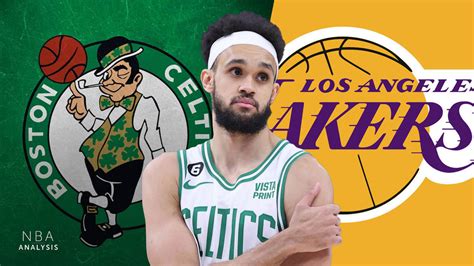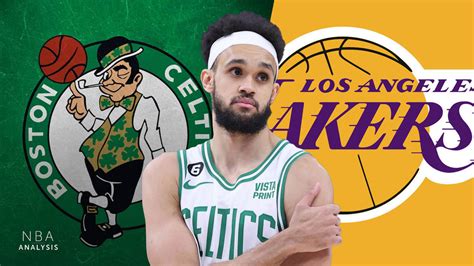
Detroit Lions defensive end Aidan Hutchinson is entering the 2024 season without a contract extension, effectively betting on himself to deliver another stellar performance and increase his value before negotiations resume.
Aidan Hutchinson is heading into his crucial third season with the Detroit Lions without a contract extension, a move that signifies his confidence in his continued improvement and potential to secure a more lucrative deal down the line. The decision to play out his rookie contract, rather than signing an extension now, is a calculated risk that could pay off handsomely if he continues to elevate his game. Hutchinson’s agents and the Lions’ front office have apparently not reached an agreement on a long-term deal, positioning the young defensive star to prove his worth further on the field.
Hutchinson’s decision highlights the complexities of NFL contract negotiations and the high stakes involved for both players and teams. The Lions drafted Hutchinson second overall in the 2022 NFL Draft, and he has quickly become a cornerstone of their defense. His rookie contract, typical for high draft picks, provides a solid financial foundation, but an extension would offer long-term security and a salary reflecting his growing impact on the team.
The negotiations, or lack thereof, suggest that the Lions may be hesitant to meet Hutchinson’s perceived value at this stage. Several factors could be influencing their approach, including salary cap considerations, the performance of other defensive ends across the league, and the desire to assess Hutchinson’s continued development. For Hutchinson, the gamble is that a dominant 2024 season will force the Lions to offer a more substantial contract or attract significant interest from other teams when he becomes a free agent.
“He’s betting on himself,” a common sentiment echoing around NFL circles, underscores the high-stakes nature of this situation. Hutchinson is essentially wagering that his performance this season will justify a higher payout than what is currently on the table. This approach aligns with many top-tier athletes who believe in their abilities and are willing to take risks to maximize their earnings.
The impact of Hutchinson’s decision extends beyond his personal finances. It also sends a message to his teammates and Lions fans. By betting on himself, Hutchinson demonstrates his commitment to excellence and his belief in his ability to lead the defense. This confidence can be infectious, potentially elevating the performance of the entire team.
General Manager Brad Holmes and the Lions’ front office must now weigh the risks of allowing Hutchinson to play out his contract. If he performs exceptionally well, his price tag will undoubtedly increase, potentially making it more challenging for the Lions to retain him. Conversely, if his performance dips, the team could secure a more favorable deal. This delicate balance requires careful evaluation and strategic planning.
The absence of an extension also affects the Lions’ long-term salary cap management. Locking up key players like Hutchinson is crucial for maintaining a competitive roster. Delaying the extension introduces uncertainty and could force the Lions to make difficult decisions regarding other players’ contracts in the future.
Hutchinson’s situation is not unique in the NFL. Many players face similar decisions regarding contract extensions, and the outcomes vary depending on performance, team needs, and market conditions. Notable examples of players who have successfully bet on themselves include quarterbacks Kirk Cousins and Dak Prescott, who both secured lucrative deals after playing under franchise tags and proving their value.
The Lions’ defense, under the guidance of defensive coordinator Aaron Glenn, is expected to play a significant role in the team’s success this season. Hutchinson’s presence is pivotal to this plan. His ability to rush the passer, set the edge against the run, and disrupt opposing offenses makes him an invaluable asset. The team’s performance will undoubtedly influence Hutchinson’s market value and the Lions’ willingness to offer a substantial extension.
Fans and analysts will be closely monitoring Hutchinson’s performance throughout the 2024 season. Every sack, tackle for loss, and quarterback pressure will be scrutinized and factored into his overall value. The pressure to perform at a high level is immense, but Hutchinson appears to embrace the challenge.
The outcome of Hutchinson’s contract situation will have lasting implications for both the player and the Detroit Lions. It will serve as a case study in NFL contract negotiations and the risks and rewards of betting on oneself. As the season unfolds, the football world will be watching closely to see if Hutchinson’s gamble pays off. His on-field performance, coupled with the Lions’ success, will ultimately determine his future in Detroit and his long-term financial security.
The implications of Hutchinson’s choice are far-reaching. For the Lions, failing to secure a long-term agreement with a player of Hutchinson’s caliber could signal a potential challenge in retaining top talent. It puts pressure on the front office to accurately assess his value and make a competitive offer that aligns with his contributions and market demand. The team must consider not only his current performance but also his potential for future growth and leadership within the organization.
From Hutchinson’s perspective, the decision to play without an extension reflects a high degree of self-belief and a willingness to shoulder the risks involved. It speaks volumes about his confidence in his abilities and his conviction that he can continue to improve and make a significant impact on the field. This bold move could inspire other players to take a similar approach, challenging the traditional norms of contract negotiations in the NFL.
Moreover, Hutchinson’s decision highlights the increasing power that players wield in the modern NFL landscape. With the rise of player empowerment and the growing awareness of their value, athletes are becoming more assertive in negotiating contracts that reflect their worth. This trend is reshaping the dynamics between players and teams, forcing organizations to adapt to the changing demands of the game.
The Lions’ fanbase is also deeply invested in Hutchinson’s future with the team. As a homegrown talent and a key contributor to the defense, he has quickly become a fan favorite. His departure would be a significant blow to the team’s morale and could erode the trust that has been built between the organization and its supporters. The Lions must therefore weigh the potential backlash from fans when making their decision about Hutchinson’s contract.
In addition to the financial and strategic considerations, there is also a human element to this situation. Hutchinson has expressed his desire to remain with the Lions and contribute to their success. He has embraced the city of Detroit and has become actively involved in the community. The Lions must take into account Hutchinson’s loyalty and commitment when making their decision about his contract.
The situation also underscores the role of agents in NFL contract negotiations. Hutchinson’s agents play a crucial role in advising him on his options and negotiating on his behalf. They must carefully weigh the risks and rewards of playing without an extension and ensure that Hutchinson’s interests are protected throughout the process. The relationship between Hutchinson and his agents will be critical in determining the outcome of his contract situation.
The Lions’ coaching staff is also closely involved in Hutchinson’s development. Defensive coordinator Aaron Glenn has played a key role in helping Hutchinson refine his skills and reach his full potential. The coaching staff’s assessment of Hutchinson’s abilities and potential will be an important factor in the Lions’ decision about his contract.
Ultimately, the outcome of Hutchinson’s contract situation will depend on a variety of factors, including his performance on the field, the Lions’ financial situation, and the market demand for his services. The negotiations are likely to be complex and drawn-out, and there is no guarantee that a deal will be reached. However, one thing is certain: Hutchinson’s decision to bet on himself has raised the stakes and added another layer of intrigue to the Lions’ offseason.
The national media is also closely following Hutchinson’s contract situation, recognizing its significance for both the player and the team. Analysts and commentators are offering their perspectives on the risks and rewards of playing without an extension, and they are closely monitoring Hutchinson’s performance to assess his value. The media attention surrounding Hutchinson’s contract situation adds to the pressure on both the player and the Lions to make the right decision.
Looking at comparable players at his position, it’s evident that premier defensive ends command significant salaries. Players like Nick Bosa of the San Francisco 49ers and Myles Garrett of the Cleveland Browns have set the market with their lucrative contracts. Hutchinson’s performance in the upcoming season will be measured against these benchmarks, and his ability to match or exceed their production will greatly influence his bargaining power.
The financial implications of a long-term extension for Hutchinson are substantial. The Lions must carefully consider the salary cap ramifications and ensure that they can afford to retain other key players while also paying Hutchinson a competitive salary. The team’s ability to manage its finances effectively will be crucial in determining whether they can reach an agreement with Hutchinson.
Moreover, the potential impact of Hutchinson’s contract on other players’ negotiations cannot be ignored. His deal could set a precedent for future contract talks with other young stars on the Lions’ roster. The team must therefore be mindful of the ripple effect that Hutchinson’s contract could have on their overall salary structure.
The Lions’ ownership also plays a crucial role in the Hutchinson contract situation. The Ford family, which owns the team, must approve any major financial decisions, including long-term extensions for key players. Their willingness to invest in the team and retain top talent will be an important factor in determining whether Hutchinson remains in Detroit.
The timing of the contract negotiations is also significant. The Lions have until the end of Hutchinson’s fourth season to reach an agreement before he becomes an unrestricted free agent. This gives the team some time to assess his performance and negotiate a deal. However, the longer the negotiations drag on, the more uncertain Hutchinson’s future with the team becomes.
The alternative for the Lions is to use the franchise tag, which would allow them to retain Hutchinson for one additional season. However, the franchise tag is a costly option, and it could strain the relationship between the team and the player. The Lions would prefer to reach a long-term agreement with Hutchinson if possible.
Hutchinson’s impact on the Lions’ defense extends beyond his individual statistics. He is also a leader on the field and in the locker room. His work ethic and determination inspire his teammates, and he sets a positive example for the entire organization. The Lions must consider Hutchinson’s leadership qualities when making their decision about his contract.
The Lions’ coaching staff has praised Hutchinson’s versatility and his ability to play multiple positions on the defensive line. His ability to rush the passer from both the edge and the interior makes him a valuable asset to the team. The Lions must take into account Hutchinson’s versatility when determining his value.
The Lions’ fans have embraced Hutchinson as one of their own, and they are eager to see him remain in Detroit for the long term. His popularity with the fans adds to the pressure on the team to reach an agreement with him. The Lions must consider the fans’ sentiments when making their decision about Hutchinson’s contract.
Ultimately, the decision about Hutchinson’s contract will be a complex one, involving a variety of factors. The Lions must carefully weigh the risks and rewards of extending his contract, and they must make a decision that is in the best interests of the team.
The Detroit Lions are entering a pivotal period, and Hutchinson’s contract situation is just one piece of the puzzle. The team is aiming to build a consistent contender, and retaining key players like Hutchinson is essential to achieving that goal. The coming months will be crucial in determining whether Hutchinson remains a part of the Lions’ long-term plans.
The Detroit Lions are aiming to solidify their status as a top contender in the NFC, and Hutchinson is a crucial piece of that puzzle. His ability to disrupt opposing offenses and generate pressure on the quarterback is vital to the team’s success. The Lions must recognize his importance and make a strong effort to retain him.
The Lions’ defense has shown significant improvement since Hutchinson joined the team. His presence has elevated the performance of the entire unit, and he has become a leader both on and off the field. The Lions must acknowledge his impact and reward him with a contract that reflects his value.
The Lions’ front office has a track record of making smart decisions and building a strong roster. They must apply their expertise to the Hutchinson contract situation and find a solution that benefits both the team and the player. The Lions’ future success depends on their ability to retain top talent like Hutchinson.
Aidan Hutchinson’s story is one of hard work, dedication, and a relentless pursuit of excellence. He has overcome challenges and exceeded expectations at every level of his career. The Lions must recognize his achievements and give him the opportunity to continue his success in Detroit.
Frequently Asked Questions (FAQs)
-
Why hasn’t Aidan Hutchinson signed a contract extension with the Detroit Lions?
Aidan Hutchinson has not signed a contract extension, seemingly because he and the Detroit Lions have not reached an agreement on terms that both parties find acceptable. This situation often arises due to disagreements over the player’s perceived value, the team’s salary cap constraints, or other factors affecting long-term financial planning. He’s essentially betting on himself, hoping that a strong performance in the upcoming season will increase his market value and lead to a more lucrative contract offer later on.
-
What are the risks for Aidan Hutchinson in playing without a contract extension?
The primary risk for Hutchinson is the potential for injury or a decline in performance during the 2024 season. A significant injury could negatively impact his future earning potential and his ability to secure a high-value contract. Additionally, if his performance doesn’t meet expectations, his bargaining power will diminish when he eventually negotiates a new deal. There is always the risk of the unknown when playing a violent sport.
-
What are the potential benefits for Aidan Hutchinson in playing without a contract extension?
The potential benefits are significant. If Hutchinson has a standout season, he could significantly increase his market value, leading to a much larger contract offer from the Lions or another team in free agency. A dominant performance would demonstrate his continued improvement and solidify his status as one of the top defensive ends in the NFL. This would give him significant leverage in future negotiations.
-
How does Aidan Hutchinson’s situation affect the Detroit Lions’ salary cap and long-term planning?
By not signing an extension now, the Lions avoid committing a large sum of money to Hutchinson in the immediate future. However, they risk having to pay him more if he performs well. The uncertainty makes long-term salary cap planning more challenging, as they must consider the potential cost of retaining Hutchinson versus other players. The Lions could also use the franchise tag, but this is usually a costlier short-term solution.
-
What options do the Detroit Lions have if they can’t reach an agreement with Aidan Hutchinson on a contract extension after this season?
If the Lions can’t reach a long-term agreement with Hutchinson after the 2024 season, they have several options:
- Franchise Tag: The Lions could use the franchise tag to retain Hutchinson for one additional season. This would give them more time to negotiate a long-term deal, but it could also strain the relationship with the player.
- Let Him Become a Free Agent: The Lions could allow Hutchinson to become an unrestricted free agent, giving him the opportunity to sign with another team. This would free up salary cap space, but it would also mean losing a key player.
- Negotiate a Trade: The Lions could explore the possibility of trading Hutchinson to another team for draft picks or other assets. This would allow them to get something in return for him, but it would also mean parting ways with a valuable player.
- Continue Negotiating: The Lions could continue to negotiate with Hutchinson’s representatives in hopes of reaching a long-term agreement. This would require flexibility and a willingness to compromise on both sides.









